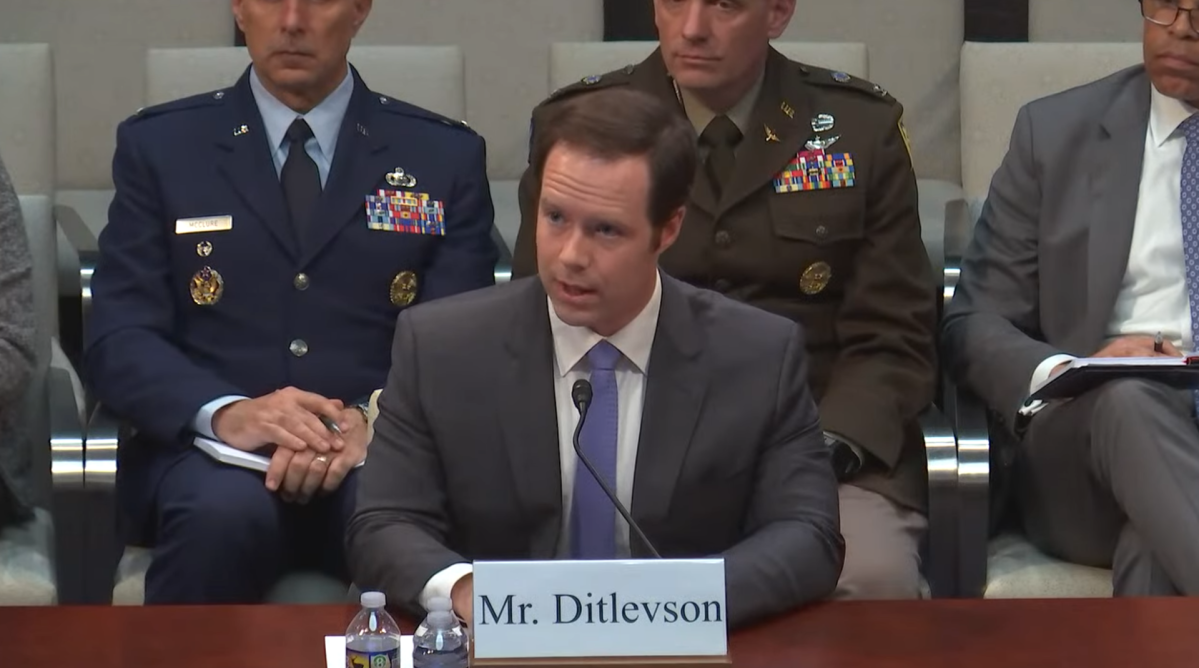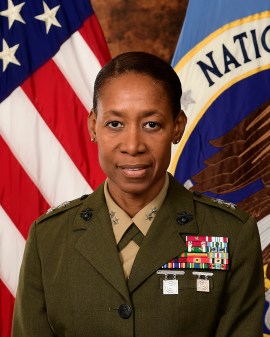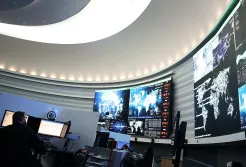Trump submits nomination for top Pentagon homeland defense policy post

President Donald Trump has nominated Mark Roosevelt Ditlevson for an important policy role at the Pentagon.
Trump’s pick for assistant secretary of defense for homeland defense and hemispheric affairs was submitted to the Senate Oct. 2 and referred to the Senate Armed Services Committee for consideration, according to a notice posted on Congress.gov.
Ditlevson had been serving in that role on an acting basis for several months, but his confirmation would put him in the job on a more permanent footing.
That ASD position oversees policy and planning at the Pentagon for homeland defense and mission assurance, defense support of civil authorities, Arctic and global resilience, and matters related to Western Hemisphere affairs, according to the department.
The role has seemingly grown in importance during the second Trump administration as government leaders pursue controversial policies.
Ditlevson’s nomination comes as the White House and Defense Department have expanded U.S. military activities in the homeland and the Western Hemisphere, including deploying troops and capabilities to the Southwest border and Democrat-led American cities to support law enforcement, and launching strikes against alleged narco-traffickers.
The Trump administration is also developing a large-scale homeland missile defense architecture dubbed Golden Dome — which will come with a high price tag and technical challenges — and moving to beef up counter-drone capabilities to protect U.S. military installations from incursions, among other efforts.
In April, Ditlevson noted in a hearing with lawmakers that the Defense Department was responding to Trump’s executive orders at the time by “preparing the path for employment of [counter-small uncrewed aerial system] activities along the border — both in support of DOD interests and in support of [the Department of Homeland Security] as the lead federal agency.”
The move was intended to undermine drug cartels’ ability to surveil U.S. troops and other personnel positioned near the border with Mexico.
The administration is also moving to make policy, process and technology improvements to aid DOD’s execution of counter-drone activities to protect installations in the homeland.
“We continue to engage with members of Congress to seek modest but important refinements to do these counter-UAS authorities under [U.S. Code] Section 130i,” Ditlevson said in April at a House Oversight and Government Reform Committee military and foreign affairs subcommittee hearing, according to a DOD news release. “Our legislative proposal is intended to allow the department to protect additional locations and missions, add greater stability for long-term planning and resource allocation within the department, and facilitate improved understanding and cooperation among the U.S. interagency and local partners.”
Defense officials are also concerned about China’s influence in Latin America.
“China controls military intelligence and space facilities throughout this hemisphere and threatens critical maritime access points such as the Panama Canal, which is vital to each nation’s economy,” Ditlevson said in August at the South America Defense Conference, according to a news release from U.S. Southern Command.
Ditlevson previously served as a senior advisor for the Department of the Navy during the early days of the second Trump administration.
Near the end of the first Trump administration, he was a special assistant to the assistant secretary of defense for special operations and low-intensity conflict. He’s also a U.S. Naval Academy alumnus and served in the Navy’s explosive ordnance disposal community, according to his LinkedIn profile.






